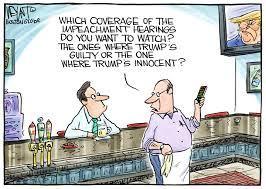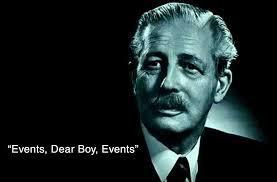 “Events, dear boy, events.” That was British Prime Minister Harold MacMillan’s famous reply, when asked what could shake up the status quo.
“Events, dear boy, events.” That was British Prime Minister Harold MacMillan’s famous reply, when asked what could shake up the status quo.
We’ve seen a lot of events in the last three years. Government shut-downs. Mueller investigation. Cruelties at the border. Charlottesville. Kavanaugh. Ukraine scandal. Impeachment. Yet nothing moves the political needle. Trump’s poll ratings have stayed stuck at around 40%.
This is actually very strange. If anything, historically, and throughout the world, voters have exhibited not steadfastness but fickleness.
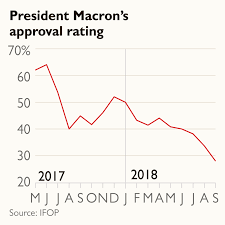
A recent David Brooks column tackles what’s going on. “Events,” he writes, “don’t seem to be driving politics. Increasingly, sociology is.” Who you are as a person tends to be determinative. This by itself is no revelation: a gay urban artist is likely to vote Democrat; a rural churchgoing construction worker Republican. But Brooks goes on to say an event itself is not what’s salient; “it’s the process by which we make meaning of the event.” Each seeing it through our own lens.

This cultural segmentation has very deep roots. Brooks writes that if a region was settled, in the 17th and 18th centuries, predominantly from East Anglia, it probably votes Democratic; if from the North of England, for Trump.
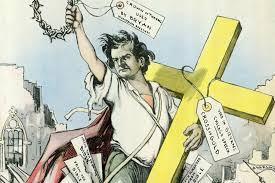
But if that kind of sorting is not new, it has greatly intensified in recent decades. For reasons Brooks says he doesn’t understand.
Nevertheless, in the rest of the column, Brooks contends that any political analysis must today concern itself not just with the ostensible ramifications of events themselves but with the different ways different groups see them. However, nothing he writes here suggests that those very different lenses are not equally valid. Yet therein lies much of the tale.
I wrote recently of a conversation with some Trumpers
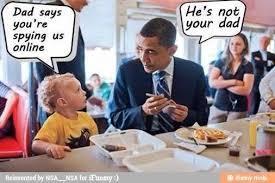
This isn’t just seeing reality through a different lens. It’s seeing reality on a different planet.
Can 40% of Americans have succumbed to mass psychosis? If Brooks is baffled by what’s happened, I’ll suggest a theory:
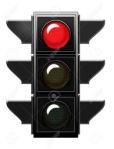
That’s a perfectly valid human concern. One might even say it’s the very purpose of being alive. Hence feeling good, along with the survival instinct, is a powerful motivator.
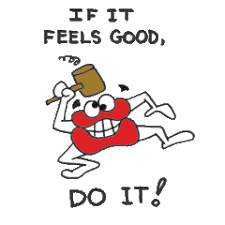
Trump and his enablers have hypercharged this. Helped by the explosion of garbage on the internet, much put there with cynical intent. They’ve made it seem a valid choice to believe things that actually are, well, lies. Indeed, they’re undermining the whole concept of truth versus lies. Truth is whatever you’d like it to be.
It helps if you’re not alone, if there’s a whole community of others with you. And a major TV network. Even the President of the United States.
In this environment, “events” actually don’t matter much at all. It’s not just that you see events through your own sociological lens. Social psychology dictates your politics regardless of events.
All this plays to people wanting (naturally) to feel good about themselves. Eliminating the cognitive dissonance of trying to reconcile support for Trump with the rotten reality. Without having to give it up and admit to yourself you’ve been conned. Especially with everyone around you staying conned.
